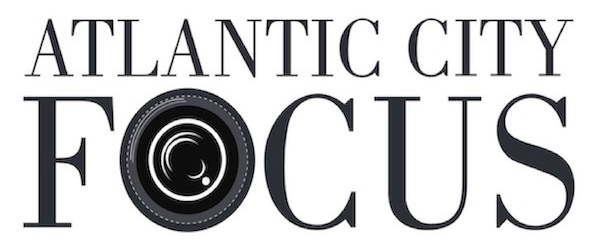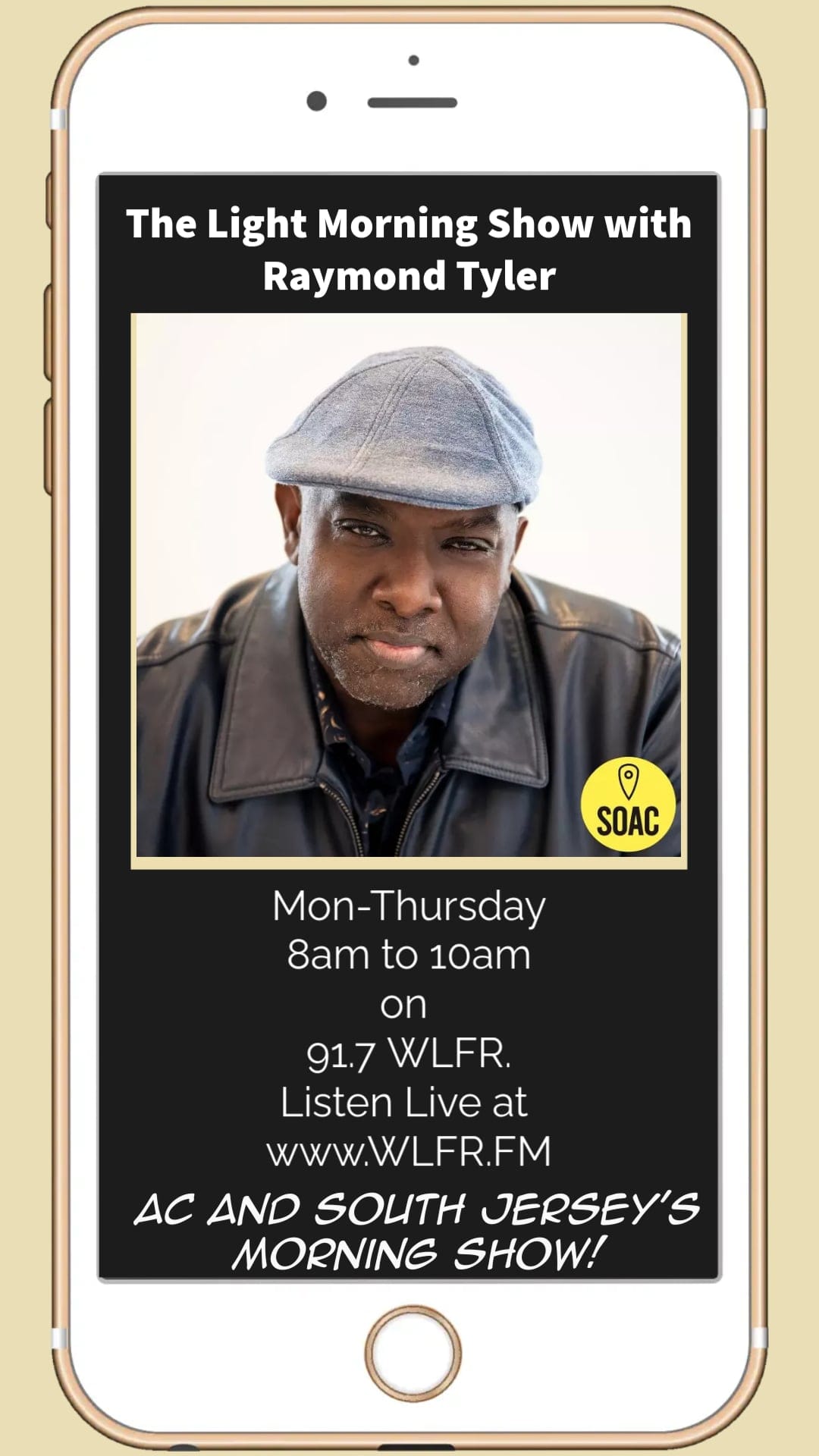New Jersey Black Republicans on Why the Democratic Party Is Not for Them
A 2014 report from the Pew Research Center estimated that only 5% of Blacks identified as Republican or leaning Republican at the time.
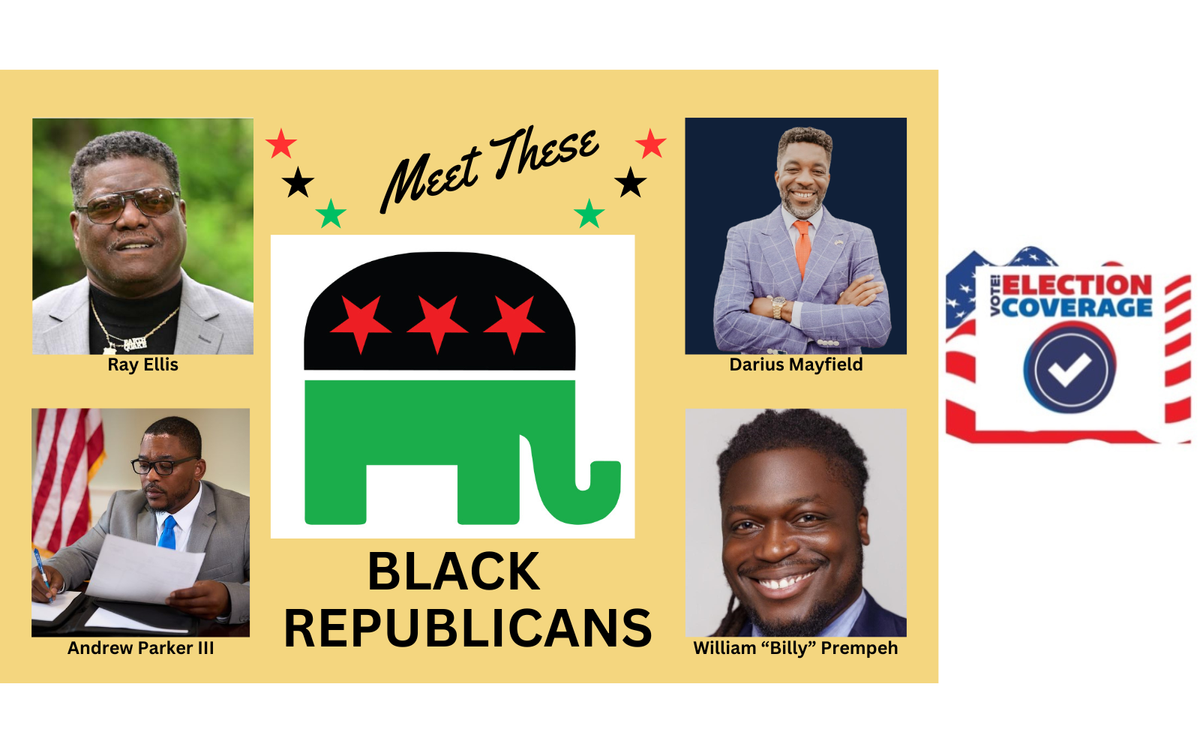
By Mark Tyler, Publisher of Atlantic City Focus, and
Lilo H. Stainton, Health Care Reporter, NJ Spotlight News
Editor's Note: This story, originally published on New Jersey Spotlight News, examining why some Black New Jerseyans have embraced the Republican Party, was published in partnership with PBS. It is the first story in a six-part series where Atlantic City Focus shares the views of Black Republicans.
In a political landscape where the Democratic Party has long enjoyed the overwhelming support of the Black electorate, a small but vocal group of Black Republicans in New Jersey is challenging the status quo. These individuals are driven by a mix of disillusionment with the Democratic Party's promises and a belief in conservative principles that resonate with their personal values.
More than 1.1 million New Jerseyans are Black, making up about 12% of the state’s population, according to data from the US Census Bureau.
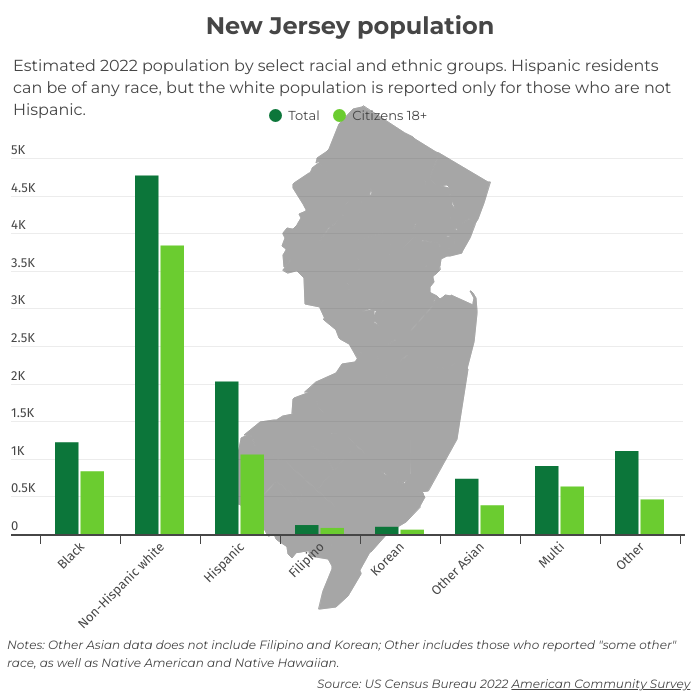
In 2022, the bureau estimates that roughly 42% of Blacks who were eligible to vote cast ballots. That percentage is likely to be higher this year because more people tend to vote in presidential elections.
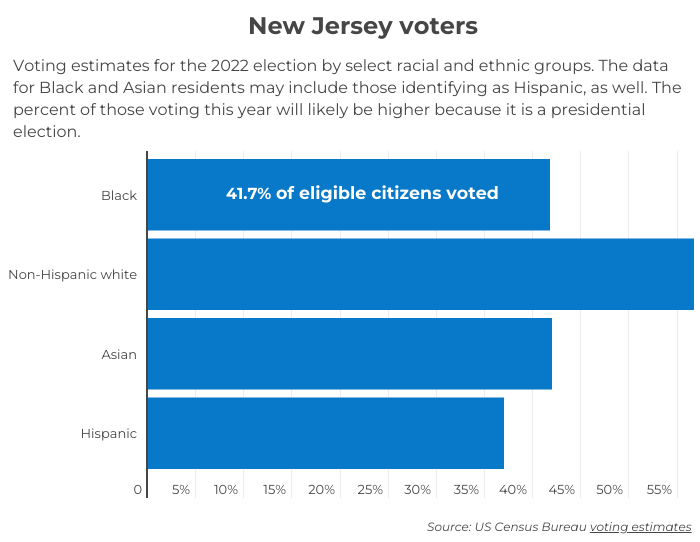
The state does not track voter registration by race or ethnicity. A 2014 report from the Pew Research Center estimated that only 5% of Blacks identified as Republican or leaning Republican at the time.
5% https://www.pewresearch.org/religious-landscape-study/database/state/new-jersey/party-affiliation/
Black Republicans in New Jersey represent a minority within a minority, but they are gaining attention. They argue that the Democratic Party has taken the Black vote for granted and has failed to deliver meaningful progress on issues like economic mobility, education, and public safety. In contrast, they see the Republican Party as offering a platform for individual empowerment, personal responsibility, and economic opportunity.
Sign Up for Atlantic City Focus Weekend Guide
Your Key to Winning the Weekend in AC and Beyond!
No spam. Unsubscribe anytime.
Disillusionment with the Democratic Party
For many Black Republicans, their journey began with frustration with the Democratic Party’s track record in addressing the needs of Black communities. Andrew Parker III, an Atlantic County Commissioner, argues that the Democratic Party has enjoyed the loyalty of the Black community for decades, despite not delivering meaningful progress.
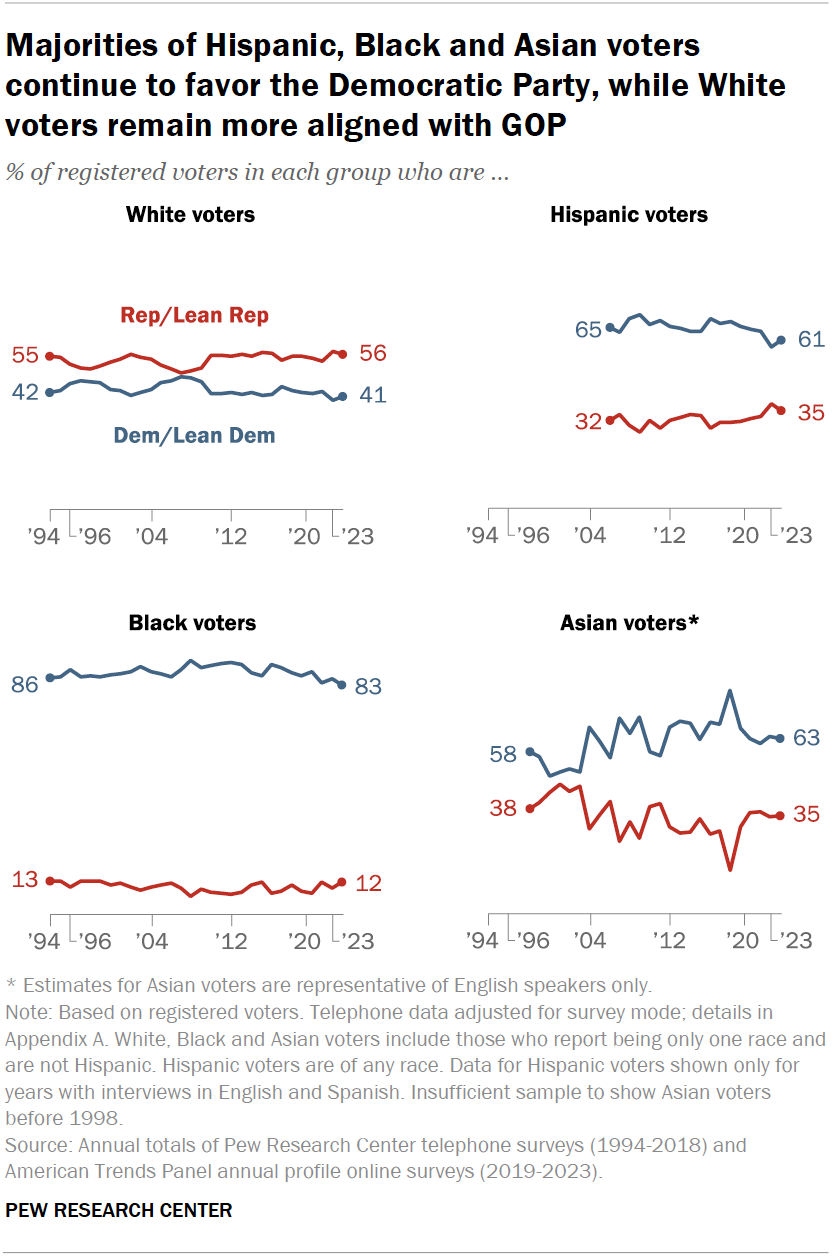
“The Democratic Party has benefited from blind loyalty from the African American population at a plus 90% rate since the early 1960s, and the conditions in our communities have continually declined or, at best, remained stagnant,” said Parker. He emphasizes that real change in Black communities cannot come from continuing to follow the same policies that, in his view, have failed to deliver results over the past 60 years. Parker believes that the Republican Party, with its focus on economic mobility, fiscal responsibility, and individual liberty, is better positioned to address the pressing challenges of inflation, economic equality, and the cost of living.

This sentiment is echoed by other Black Republicans who feel that the Democratic Party has focused too much on social programs and government intervention without empowering individuals to achieve success through their own efforts. Many argue that the Democratic focus on government assistance has contributed to a cycle of dependency, rather than creating pathways to true economic self-sufficiency.
A Focus on Conservative Values
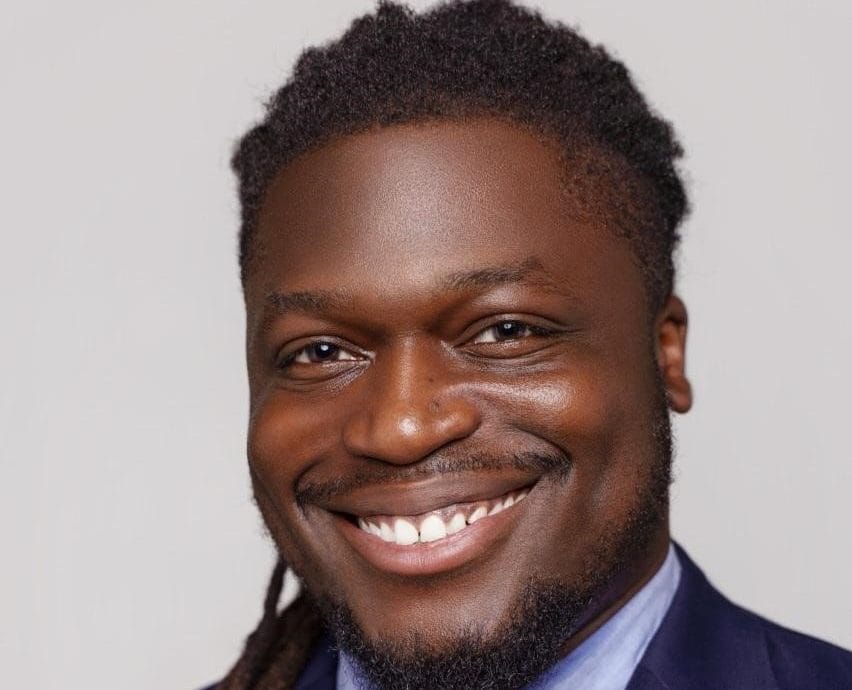
For individuals such as William “Billy” Prempeh, a Republican candidate for New Jersey’s 9th District Congressional seat, the choice to join the GOP was rooted in a realization that his personal values aligned more closely with conservative principles. Prempeh, a Us-born citizen whose parents legally immigrated from Ghana, believes in school choice, is vehemently opposed to abortion and rejects the concept of institutional racism. He also criticizes the origins of Planned Parenthood, which he argues was designed to promote abortion in poor Black communities. Prempeh’s belief in merit-based success and personal responsibility stands in stark contrast to what he views as the Democratic Party’s focus on racial equity. He’s not a fan of equity because he believes everyone should be able to thrive based on ability and hard work. In his view, the Republican Party offers greater opportunities for individual success, regardless of race.
“They want upward mobility as opposed to equality and equity, which I agree with,” Prempeh said of the Republicans. “If I work harder than someone, my ceiling should not be limited because you can’t do what I do.”
This emphasis on traditional conservative values is a recurring theme among Black Republicans in New Jersey. Darius Mayfield, a candidate for Congress in New Jersey’s 12th District, describes himself as “fiscally conservative and socially normal,” and supports policies like school choice and lower taxes. He argues that the public school system in America is one of the most systematically racist systems in the country, and that school choice is a way to break the cycle of underperforming schools in predominantly Black neighborhoods.

Mayfield’s support for the Platinum Plan, a policy initiative introduced by former President Donald Trump to increase economic opportunities for Black Americans, further illustrates the appeal of conservative policies for some in the Black community. The Platinum Plan promised to create 500,000 new Black-owned businesses, increase access to capital in Black communities, and improve homeownership opportunities. For Mayfield, these initiatives represent a tangible effort to uplift Black communities, in contrast to the broader social programs championed by the Democratic Party.
“The Platinum Plan was basically a form of reparations for Black People,” Mayfield said, “I understand that I can do things specifically for (the Black) community because they deserve it and we are owed it in a lot of ways because of what we’ve gone through in this country.”
Challenging Racial Stereotypes in Politics
A significant challenge for Black Republicans is the social pressure they face within their own communities. Prempeh recalled how he once believed that supporting the Republican Party was inherently racist.
“The white people are Republicans. The Black people are Democrats, and if you support the Republicans, then you’re a racist,” he said. “I was brainwashed.”
However, his views changed after a white friend challenged him to examine his beliefs more closely, leading him to conclude that his values were more in line with the Republican Party.
“I believe in God. I believe in the sanctity of life. I believe I need the right to defend myself,” Prempeh said. “All these things that I think would be common sense, I figured the Democrats also believed. But I found out, over time, that they don’t believe any of the things that I believe in, and actually, I’m not a Democrat at all.”
Ray Ellis, a longtime Republican and a member of the Egg Harbor Township Committee, emphasized the importance of developing relationships within the community rather than focusing on party labels.
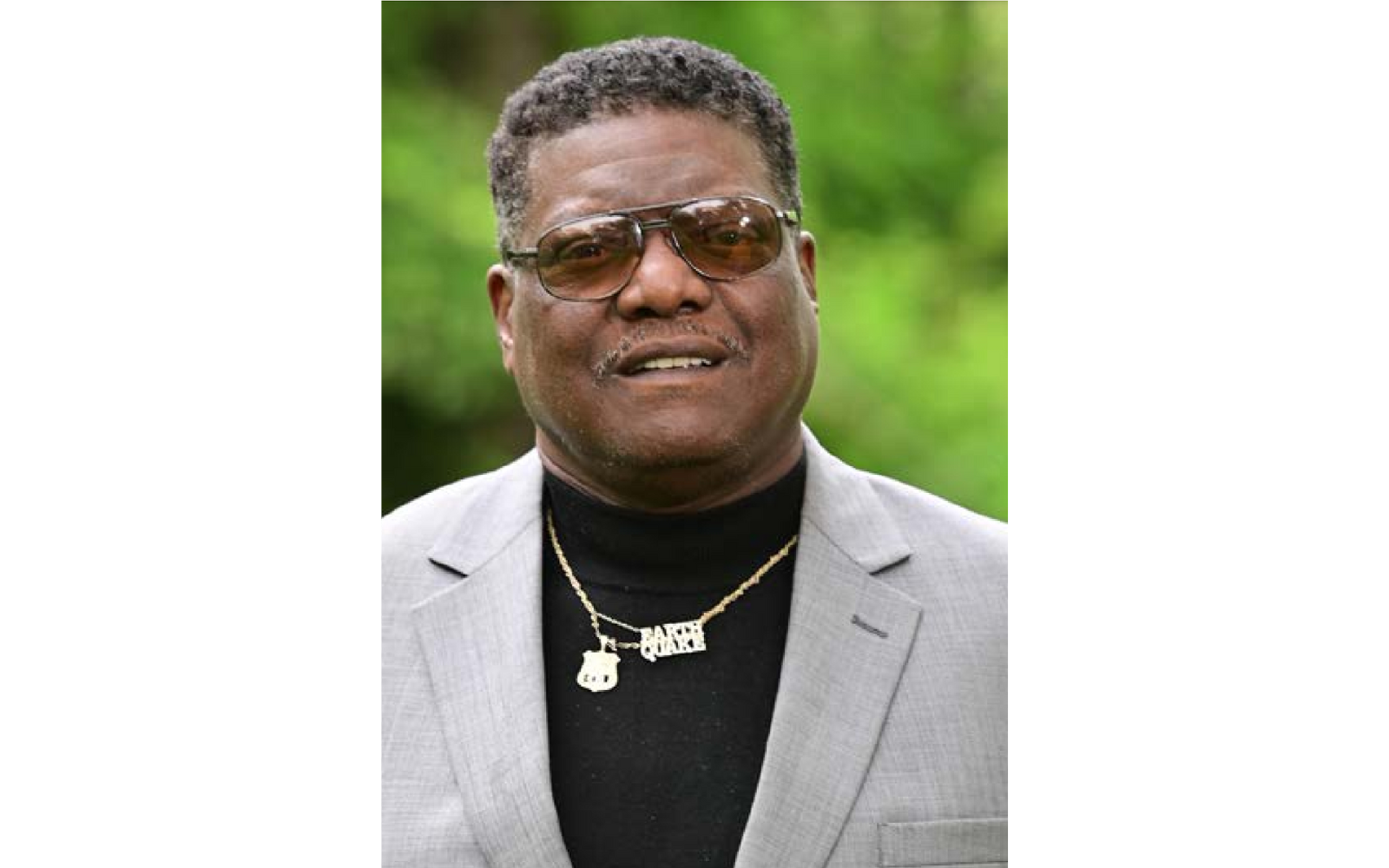
“I don’t care if you’re a Democrat or Republican. I don’t like people who are just running for a title. Are you going to help the community, or are you just going to be a title man?” Ellis asked. His focus on community service, through coaching youth football and mentoring young men, has earned him respect across party lines. “It doesn’t matter if people are Democrat or Republican. People understand that I’m for the community.”
The broader political discourse has equated Black identity with Democratic loyalty. But Black Republicans argue that their political choices are not about race, but about aligning with the policies and values that they believe will benefit their communities the most.
“People should focus on policy and what the individual brings to the table rather than party ideology,” Prempeh said. “What they stand for, that's far more important because when we get blinded by party, we never move forward.”
A Reversal of Political Alliances
Historically, the Republican Party, the party of Abraham Lincoln, has had strong support from the Black community, especially after the Civil War and during Reconstruction. However, by the mid-20th century, the political allegiances of Black voters had shifted, largely due to the civil rights movement and the Democratic Party’s embrace of civil rights legislation under President Lyndon B. Johnson. The Republican Party’s opposition to some of these policies, including Barry Goldwater’s stance on states’ rights in the 1960s, contributed to the mass exodus of Black voters from the GOP.
According to the Pew Research Center, 83% of Black voters are Democrats https://www.pewresearch.org/politics/2024/04/09/partisanship-by-race-ethnicity-and-education/
When asked how they feel about the presidential candidates, most Black registered voters favor Harris over Trump. About two-thirds of Black voters think Harris would make a good president, while three-quarters say Trump would not, according to a national poll of nearly 1,800 registered voters conducted in mid-September by the AP-NORC Center for Public Affairs Research at the University of Chicago.
‘national poll’ = https://apnorc.org/projects/black-voters-trust-kamala-harris-to-handle-the-issues-they-care-most-about/
The poll also showed the economy is the top issue on the minds of Back voters – a concern to 8 out of 10 of them – followed by health care, crime and immigration. Nearly three quarters of Black voters said Harris would better address health care issues, with 8% favoring Trump’s approach. Some 53% of Black voters favored her stance on immigration, 58% on crime and 61% on the economy. With Trump, 22% of Black voters trust him more on immigration, 18% on the economy and 10% favor his views on crime, AP-NORC found.
Today, the relationship between Black voters and the Republican Party is complex. While most Black voters continue to support the Democratic Party, a small percentage of individuals are questioning the wisdom and usefulness of this allegiance. They argue that the Democratic Party’s focus on identity politics and social programs has not delivered the economic or social progress that was promised.
Parker suggested that the Republican Party’s focus on free-market principles, lower taxes, and entrepreneurship offers a more viable path to economic prosperity for Black Americans. Parker’s vision of “participatory democracy” emphasizes economic self-sufficiency, civil rights, and civic engagement — values he believes are better championed by the Republican Party.
“I want to be clear: I became a Republican pre-President Trump and plan to be here post-President Trump. My loyalty lies in improving our communities and the lives of those who live and work in them,” Parker said. “The Republican Party’s messaging around the American Dream, economic mobility, and opportunity resonates with my belief that hard work and individual effort should be the primary means of advancement.”
Editors Note: (Editor’s note: This story has been updated. It had incorrectly stated that Billy Prempeh immigrated to the U.S. from Ghana. Prempeh’s parents immigrated from Ghana.)
This story is part of the NJ Decides 2024 Reporting Fellowship, in collaboration with six local and community news organizations and the Center for Cooperative Media at Montclair State University. The stories in this collaboration focus on the presidential election from the perspectives of diverse communities in New Jersey.
Thanks for reading the whole story!
At Atlantic City Focus, we're committed to providing a platform where the diverse voices of our community can be heard, respected, and celebrated. As an independent online news platform, we rely on a unique mix of affordable advertising and the support of readers like you to continue delivering quality, community journalism that matters. Please support the businesses and organizations that support us by clicking on their ads. And by making a tax deductible donation today, you become a catalyst for change helping to amplify the authentic voices that might otherwise go unheard. And every contribution is greatly appreciated. Join us in making a difference—one uplifting story at a time!



